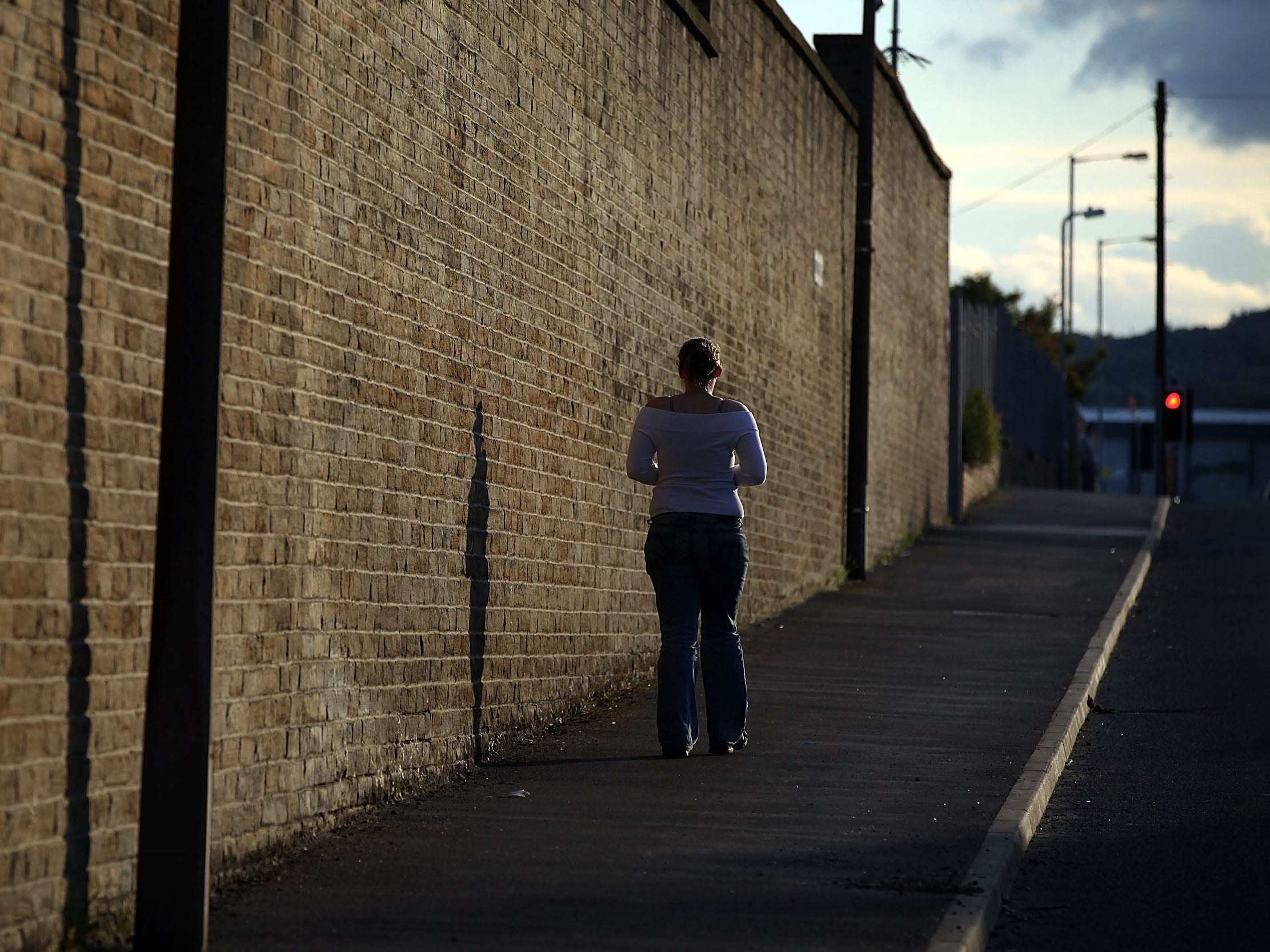I have just met an Albanian girl who was unknowingly trafficked across Europe. This is her story
Trafficking gangs target children and adults from all kinds of demographics, no matter what their education, lifestyle or age

Since the Modern Slavery Act of 2015, the issues of human trafficking and enforced slavery have become more embedded in the public consciousness. However, when we think of a “typical victim”, who immediately springs to mind? Runaways who no one will miss until it’s too late? Young girls stolen for sex? Vulnerable men falling prey to criminal gangs? Or could it be someone just like you?
Trafficking gangs target children and adults from all kinds of demographics, no matter what their education, lifestyle or age. As “Natasha” – a young woman I have recently got to know – found out to her horror.
Imagine finishing university, going on holiday to meet your boyfriend’s family, and then finding yourself betrayed by your love, trapped in a brothel nearly 1500 miles away from home and forced into prostitution. That is just what happened to Natasha, and she wants to share her story to make it clear that anyone can be manipulated by traffickers intent to do harm.
Two years ago, aged 21, she was at the end of her university career in Albania. She had been dating a fellow student, “Peter”, for several months, and was excited about an upcoming trip to see his family in Belgium. It would be the first time she would be leaving Albania, and the plan was to spend several weeks in Europe so she could get to know her partner’s family, with a view to getting married. Little did Natasha know that she would spend the next year in enforced prostitution.
What happened to Natasha is by no means unusual. The numbers are chilling.
In the past five years, 89 million people experienced some form of modern slavery, according to the International Labour Organisation 2017 report. That same report stated that on any given day in 2016, 40 million people were victims of modern slavery – with an estimated 25 million people in forced labour. Women and girls accounted for 71 per cent of modern slavery victims.
Though she has been safe in the UK for over a year, Natasha still fights tears when she relives her ordeal. She explains what happened to her with a detached exhaustion.
“I have tried hard, very hard, to wipe it out. But sometimes it comes back.”
On arriving in Belgium, Peter had taken her to a friend’s house. “He said to me, ‘I’m not going to come back again. You’re going to stay here, and you will see what happens later on’.”
Peter left the house, and she never saw him again.
That same night, she was taken to a bedroom with a man she had never met before. He became her first client.
Initially, Natasha was in shock, but she soon grew despondent and depressed. As the punters came and went, so did her hope. She tried to take control of the situation by refusing to take care of herself, so men wouldn’t choose her when they came to the house.
Months later, Natasha found out she was pregnant. Terrified, she was too far gone for a termination, and her captors told her they would still keep her working once the baby arrived.
“I had to do something to get out of this situation,” she says. “The only thing that stayed in my mind was to get out of this place. I would have done everything so that I wouldn’t have to go through what I did again.”
And one summer evening, when she was seven months pregnant, an opportunity presented itself to escape. Her “housemates” were distracted, and Natasha managed to break out of the brothel and leave. She grabbed what she could, and after walking for “about an hour” she managed to persuade a lorry driver to come to her aide. She told him she didn’t care where he was going, she just begged him to take her wherever that was.
Hours later, the lorry doors opened and Natasha realised she was in the UK. She doesn’t know where the driver left her, but says, “It was my good luck that he helped me.”
Recounting this moment, Natasha breaks down.
“What I had seen on TV about the UK… I was far away… I am going so far away… so I was thinking of my family… and the baby in my tummy.”
Her baby was born safely two months after her escape.
It’s now almost 18 months since Natasha fled her captors, and after receiving support from Hestia, an organisation which works with victims of modern slavery, in conjunction with the Salvation Army, she has begun to rebuild her life in a safe environment. Being reunited with her family in Albania seems doubtful, as she fears their judgement.
Natasha can’t yet work as she is still awaiting a decision on her asylum status, so her future is still uncertain.
Yet, despite her vulnerability, Natasha chose to speak out about her ordeal in order to tell the world that anyone, no matter what their background, can fall victim to modern slavery.
Can you Spot the Signs of Modern Slavery?
Louise Hulland is a journalist, presenter and documentary maker @LouiseOnAir

Join our commenting forum
Join thought-provoking conversations, follow other Independent readers and see their replies